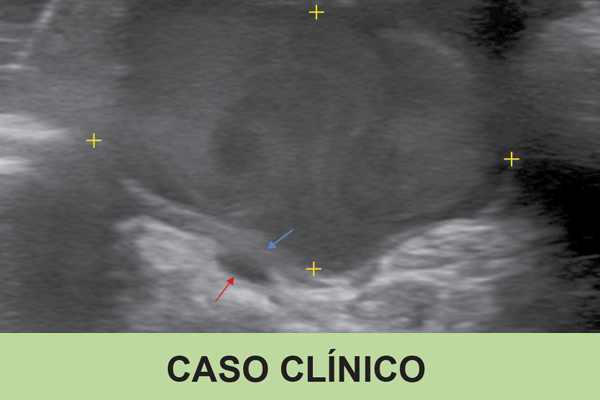SOCIAL MEDIA
Portuguese Medical Association's Scientific Journal

Arterial blood gas, with subsequent radial arterial puncture as a simple access point, comprises a ubiquitous medical procedure in the diagnostic workup of patients admitted to the emergency department with dyspnea. Despite being a relatively safe and technically straightforward procedure, due to its considerable use, it is of vital importance to be able to promptly recognize its potential complications. We present the case of a 96-year-old female patient admitted to the emergency department with dyspnea and cough who underwent left radial arterial puncture for arterial blood gas. A total of three puncture attempts were performed until arterial blood was collected. Roughly two weeks upon observation, the patient was readmitted to the emergency department after the insidious appearance of a painful swelling in the left wrist, with progressive worsening since hospital discharge. On physical examination, a painful erythematous pulsatile swelling in the left wrist’s volar aspect was observed, and further point-of-care ultrasound evaluation documented a cysticlike collection, communicating with the radial artery’s lumen, and suggesting the probable diagnosis of iatrogenic radial pseudoaneurysm. The patient was hospitalized and underwent surgical resection of radial pseudoaneurysm, with subsequent arterial repair. Although severe complications from arterial blood gas have a low incidence rate, prompt diagnosis and management are required. Therefore, point-of-care ultrasound, as an additional diagnostic tool, may play a role in minimizing the risk of procedural complications.